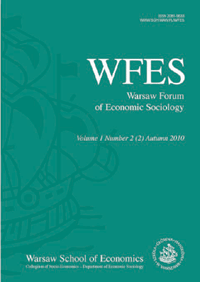Illusory Corporatism in Eastern Europe: Neoliberal Tripartism and Postcommunist Class Identities
Illusory Corporatism in Eastern Europe: Neoliberal Tripartism and Postcommunist Class Identities
Author(s): David OstSubject(s): Social Sciences, Economy
Published by: Szkoła Główna Handlowa w Warszawie
Keywords: neoliberalism; tripartism; postcommunism; East European; Czech Republic; Bulgaria; Poland; Hungary; Slovakia
Summary/Abstract: The plethora of tripartite bodies in postcommunist countries seems to suggest the emergence of an East European corporatism. Analysis of arrangements in Bulgaria, Czech Republic, Hungary, Slovakia, and Poland indicates instead the prevalence of illusory corporatism. Token negotiations, non-binding agreements, and exclusion of the private sector demonstrate that tripartite procedures are deployed to introduce neoliberal, not social democratic, outcomes. A path-dependent argument stressing labour's weak class identity best explains these outcomes. East European labour, unlike historic western counterparts, is marked by a weak sense of class interests, disinclination to organize the private sector, and declining support from the workforce, making it unable to emerge as a strong force. It is not labour but the new elites that seek tripartism, hoping thereby to share burdens, conform to European norms, and demonstrate responsiveness to society. Formal tripartism also follows from the legacy of state socialism, giving symbolic voice to the formerly included now headed for exclusion. In the end, tripartism helps secure labour's acceptance of its own marginalization.
Journal: Warsaw Forum of Economic Sociology
- Issue Year: 1/2010
- Issue No: 2 (2)
- Page Range: 91-122
- Page Count: 32
- Language: English

